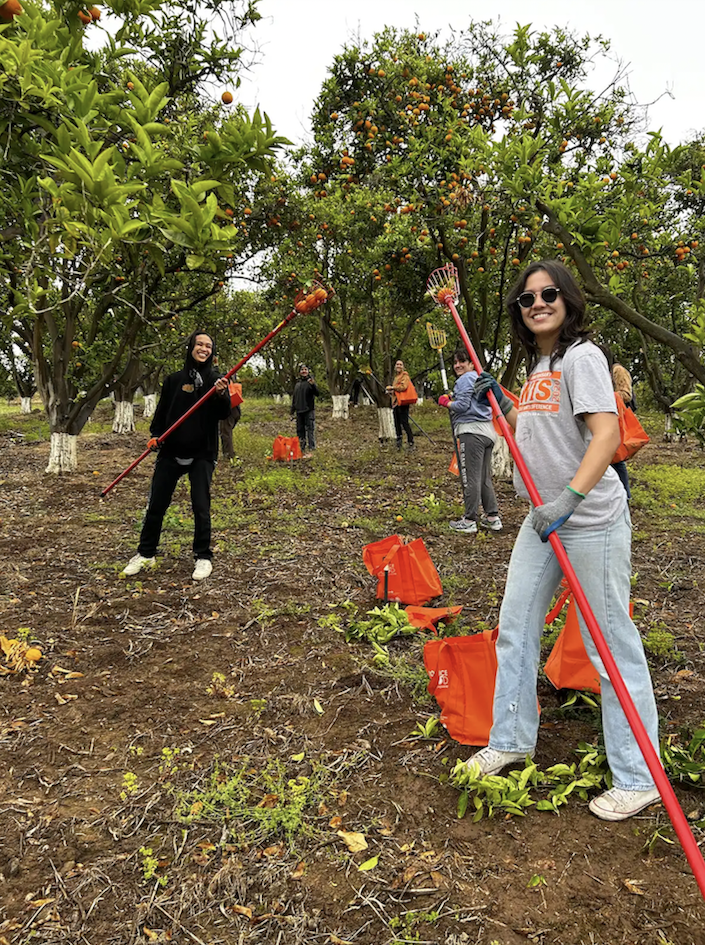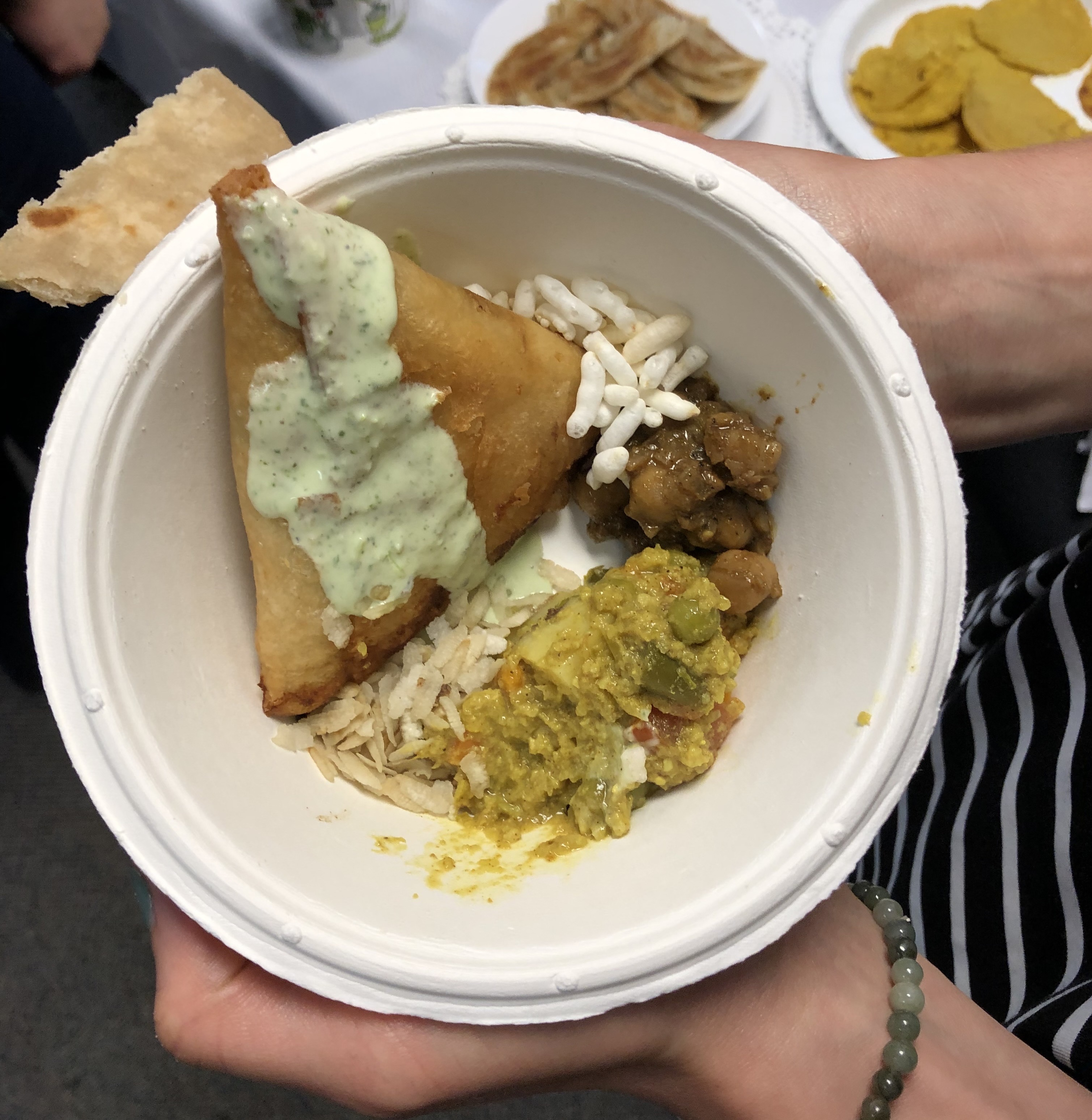Food for Thought: The Ingredients for Social Change
Social Sciences courses give students a taste of the social importance of food
Published Date
Story by:
Media contact:
Topics covered:
Share This:
Article Content
Food provides us with essential nutrients, obviously. But what else does food do? As climate change and food insecurity become increasingly urgent to address, it’s also becoming more important to understand the many roles food plays in our societies.
The cultural, economic, and political implications of the foods we eat are being examined by scholars in the UC San Diego School of Social Sciences. Their work explores food systems and ways to make access to food more equitable and sustainable, especially in a changing climate.
Food insecurity is a major challenge globally. It also impacts many more populations than people suspect. College students throughout the U.S. experience the issue keenly and very personally. In the University of California system, for example, about 51% of undergraduates experience food insecurity.
Meet three Social Sciences professors who are unpacking this and other issues in their food courses.
“Our food systems issues are societal issues.”
Amy Lerner, associate professor in the Department of Urban Studies and Planning, emphasizes hands-on learning in her class, "Urban Challenges: Sustainable Food Systems." Students are often engaged in community service projects or exchanging their favorite low-cost, healthy recipes. “We create a class recipe book, have a cooking and crafting day, visit and work at a community garden, glean and distribute food across San Diego, and create proposals to improve our campus food system,” Lerner said. “I strive to make it interesting and fun, since food is something we also share and is a beautiful part of humanity.”
It takes a village to bring this community-based learning experience to life. Students spend one class session exploring campus with landscaper Chris Johnson. Lerner also regularly collaborates with Elle Mari, director of urban food equity at the UC San Diego Center for Community Health, who helped create the course.
Community engagement is a pillar of Lerner's work that she hopes to instill in her students. "I often mentor students in their senior projects who are working in local institutions or organizations about issues related to food systems, and I partner with on- and off-campus colleagues to make it happen," she said.
Outside of the classroom, Lerner works with UC San Diego's Sustainable Development Goal Initiative and the San Diego County Office of Sustainability and Environmental Justice to facilitate workshops about decarbonization and sustainable agricultural landscapes. She also researches pathways for sustainability action in Mexico and San Diego.
For Lerner, food security and sovreignity issues tell us a broader story about global inequality. “Agriculture is the intersection between the environment and society, so you need to understand the human angle to understand food systems, which includes growing, storing, distributing, eating, preparing food," Lerner said. "Our food systems issues are societal issues.”


“Food can transcend its basic function of sustenance and become a powerful symbol of cultural identity and heritage.”

Jana Fortier, a lecturer in the Department of Anthropology, is fascinated by how the simplest ingredients can take on incredible meaning in different parts of the world. “Food can transcend its basic function of sustenance and become a powerful symbol of cultural identity and heritage,” Fortier said. “One surprising example that emerged from my teaching is the importance of Spam (tinned processed ham) for breakfast in certain cultures. While it might not be a common breakfast food for many Americans, my students from countries like Japan, the Philippines, and Indonesia shared how Spam is incorporated into delicious dishes like sushi, breakfast eggs, and egg fried rice.”
In her course “Food, Culture, and Society,” students research and write about the history and significance of their favorite foods for the class blog. Recent blog essays include the need for more nutritious breakfast options on campus, the origins of American Chinese cuisine, and the history of Oktoberfest. “The blog essays encourage my students to connect with family, friends, and the public, fostering a deeper appreciation for the social and cultural dimensions of food.”

Fortier also teaches “Food Cultures of South Asia,” where students immerse themselves in South Asian culture through cooking. “Students learn to prepare dishes like lentil dal, roti bread, lemon chutney, and grind spice mixtures. We culminate the class with a potluck where everyone shares their culinary creations,” Fortier said. She hopes this experience leaves students with “a firsthand understanding of the ingredients, techniques, and flavors that define South Asian cuisine."
Asked why bring a social sciences lens to the study of food, Fortier said, "Science is the brain of food studies, the humanities are the heart, and the social sciences are the voice. Social sciences help us understand how food intersects with our social structures, cultural practices, economic systems, and political landscapes.”
“We can see a lot of accessible opportunities for grassroots activism that can lead to meaningful, if incremental, social change.”
Christine Crofts, a lecturer in the Department of Sociology, explores food’s role in society from many angles. From analyzing foodie content on social media to researching the history of U.S. nutrition guidelines, students in “Sociology of Food” gain an expansive understanding of food studies. Crofts shared why she loves teaching this subject: “When something is such a significant element of our everyday, our family life, our culture, our leisure and entertainment, our health, (the list can and does go on!), how can we not want to dig deeper into that?”
One of her favorite parts of the course is surveying students on what food means to them. “When asked to complete the sentence ‘Food is…’ student responses have included ‘joy,’ ‘self-care,’ ‘creative expression,’ ‘a human right,’ ‘fuel,’ ‘a chore,’ ‘community,’ ‘culture,’ ‘home,’ ‘love,’ and ‘peace’,” Crofts said. “These diverse perspectives remind me that food is both a cultural universal (something meaningful to – while expressed uniquely within – every culture) and a deeply personal part of identity and experience for each individual.”
While the magnitude of food issues can be discouraging to some, Crofts feels hopeful. “It’s one of those areas where – despite significant sociopolitical challenges and systemic dysfunctions – we can see a lot of accessible opportunities for grassroots activism that can lead to meaningful, if incremental, social change.”
Learn more about research and education at UC San Diego in: Climate Change
Stay in the Know
Keep up with all the latest from UC San Diego. Subscribe to the newsletter today.




